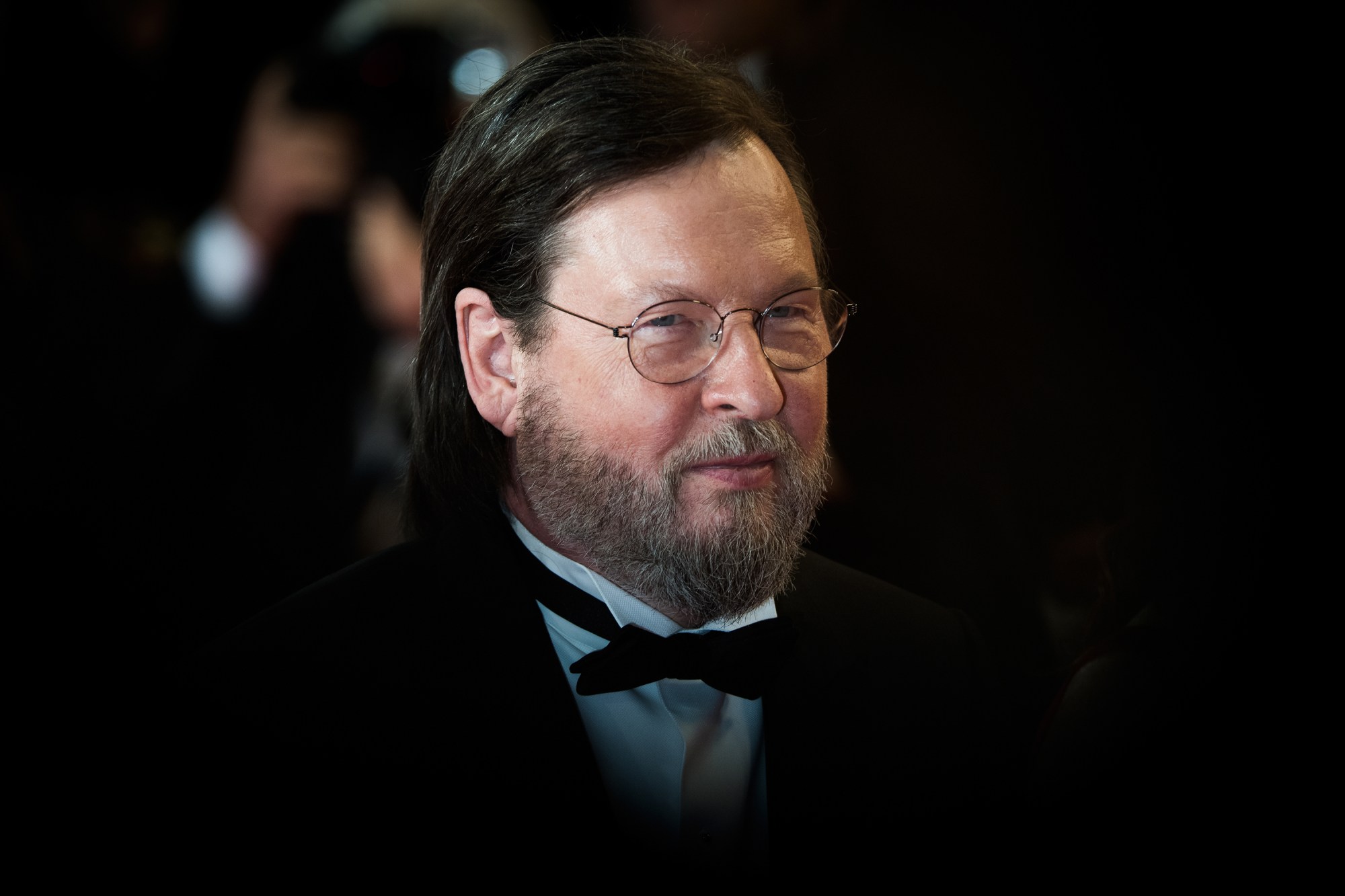
- Festivals
Venice 2022: Lars von Trier Talks “The Kingdom Exodus”
Lars von Trier is one of the most celebrated filmmakers of Denmark, best known for his provocative stylistic cinematic experiments, and headlong dives into controversial subject matter. In his home country, Breaking the Waves, Dancer in the Dark, and Dogville director has received seven Bodil Awards (given by Danish critics) and 15 Robert Awards (the top Danish industry prize).
For many, though, von Trier’s The Kingdom remains perhaps his most enduring masterpiece. In 1994, in only his second foray into television, von Trier crafted a unique mélange of disparate genre tonalities, including medical drama, horror, supernatural, musical, and wry comedy. Set in the neurosurgical ward of the largest and most highly specialized hospital in Copenhagen, the project picked up the Best Director Award at the 30th annual Karlovy Vary International Film Festival, and helped catapult von Trier onto the international stage, where he would for the next two decades continue to frequently court both acclaim and outrage.
The Kingdom’s original four-episode run (a two-part theatrical version was also released in key international markets) was followed by a four-hour second season in 1997. Now, 25 years later, comes the five-part The Kingdom Exodus, which focuses on Riget staff and patients both new and old, and recently made its debut at the 2022 Venice Film Festival.
“I had a not-so-good time in my life and I had several different projects that could be started,” said von Trier at his project’s festival press conference, where he appeared on September 1 alongside producer Louise Vesth and actors Ida Engvoli, Nicolas Bro, Nikolaj Lie Kaas, and Bodil Jørgensen. “But The Kingdom seemed at that time to be the easiest one to go to. So, I took it on as pleasure, to ride it, and had great fun. I don’t know if it appears that way, but hopefully.”
“For some reason, the humor came very easy to me,” he continued. “But it came also because I allowed the actors some freedom. We together reached this ‘humoristic’ layer, and it felt right — though I’m sure I’d said that by number two as well. But at a certain time, I was a master of having trilogies with only two films in them, because I never finished them. So I thought with The Kingdom I can at least finish.”
Television has of course changed a lot in the intervening years since the release of The Kingdom’s first two seasons. And one need look no further than one of the biggest inspirations for von Trier’s series for how to lean into that difference, and locate rebirth. Mark Frost and David Lynch’s Twin Peaks, which the filmmaker frequently has credited alongside the 1965 French miniseries Belphegor as progenitors for The Kingdom, made a triumphant reappearance on the small screen in 2017 with Twin Peaks: The Return, a challenging, 18-episode series which swore off nostalgia and bent its narrative into wild, rewarding new pretzel twists.
So how did von Trier grapple with The Kingdom’s own legacy, and think about how he might want his work on the third season to either stand alongside or differentiate itself from other TV nowadays?
“I don’t see very much television, so it’s a little difficult to talk about the state of (the medium overall),” von Trier said. “But I will say that the first (season) we made, we had very little time and very little money, and this time we had it. I think I worked on this one for three-and-a-half years or something. But how can I compare them? Well, I feel older, of course, since it was 25 years ago we made the first one. And for me, one example of failure is when (Ingmar) Bergman did Fanny & Alexander, because I’ve seen all Bergman’s films, and I was definitely a fan. But then it seemed to me that he took the peaks from his whole career and put them into one film that was very broad and very popular. And this is not that. I just thought it was important to have a looser grip of the material.”
“What I didn’t know was that I was already ill when we started filming,” von Trier continued. (It was announced in August that the 66-year-old filmmaker has been diagnosed with Parkinson’s disease.) “And I had a rotten time, but I hope the (results) didn’t suffer,” he said. “I’ve been very happy for the support of all the actresses. But it’s a little difficult. I didn’t sit down and watch all the old episodes. I think I was trying to get rid of the ties from the old stuff, and I only thought about the characters. I was not trying to do something that’s modern — I don’t know, I was not trying to revive (if that makes sense). As I said, when I was writing the whole thing, it was pure joy. And therefore, if you go through the whole thing, you will see that there are a lot of mistakes and things that don’t end or should have ended or whatever. But I hope that it has life.”

